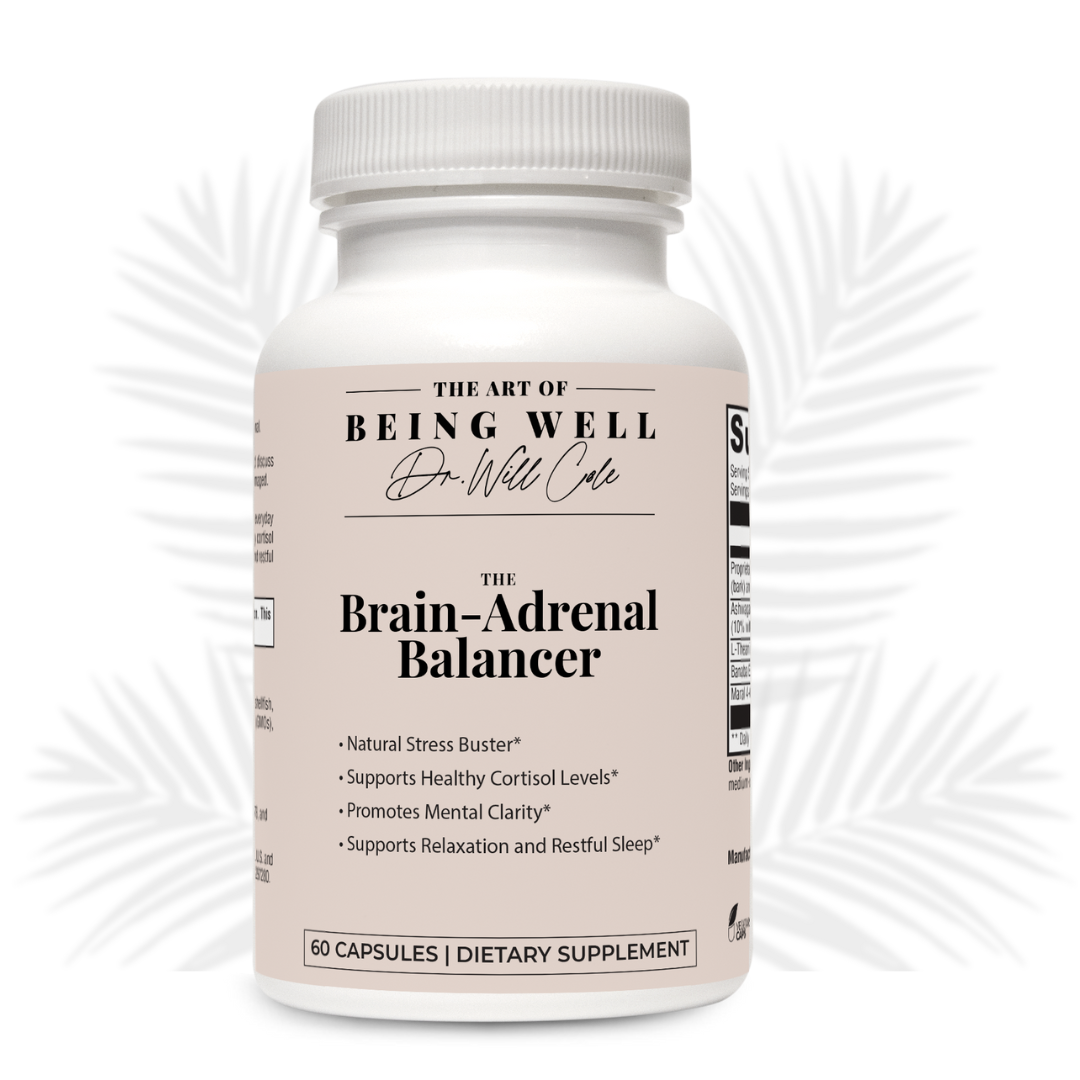“Hot Girl Tummy Issues”? The Surprising Connection Between Women + Digestive Distress

In the era of social media, health trends and buzzwords tend to come and go. But one particularly noteworthy phrase that has emerged is "hot girl tummy issues” and it is beginning to shed light on a sobering reality: women are grappling with markedly higher rates of digestive distress than their male counterparts. This gender disparity is something I see far too often in my telehealth functional medicine clinic, and it remains a subject of extensive clinical research. My team and I even examined this phenomenon in a recent episode of my podcast, The Art Of Being Well.
And the statistics don’t lie. According to the American College of Gastroenterology, (1) conditions like Irritable Bowel Syndrome (IBS) affect approximately 10-15% of Americans, with women being nearly twice as likely to be diagnosed with IBS than men. Women are also 2-3 times more likely (2) to be diagnosed with gallstones than men and have a higher prevalence (3) of functional dyspepsia - a condition characterized by persistent, upper abdominal discomfort unrelated to a specific health condition.
So whether you find yourself contending with persistent bloating, food sensitivities, or grappling with a chronic condition such as Irritable Bowel Syndrome, read on as we dive into the factors behind this rise in digestive distress and give you the tools you need to reclaim control over your gut health.
Uncovering the Link Between Gender + Gut Health
In order to narrow the gap between women and men’s rates of digestive distress, we first have to understand the mechanisms behind these problems. By highlighting the differences between men and women’s biochemistry, we can begin to target the ways we support women’s specific health needs in order to alleviate digestive distress.
1. Structural Differences
One key difference between men and women is the structure of their internal organs. Since women’s abdomens also have to fit their reproductive organs like the uterus and ovaries, this overcrowding can influence the function of your digestive organs, potentially exacerbating digestive distress. Also, studies have found (4) that women have a slower rate of gastric emptying - the rate at which food moves through your digestive tract - that may contribute to why women tend to experience bloating and nausea more often than men.
2. Hormone Fluctuations
One of the main factors driving the higher prevalence of digestive distress among women is hormones. Normal fluctuations in estrogen levels throughout the menstrual cycle can lead to changes in gut function, potentially exacerbating IBS symptoms during certain phases. It’s also important to note that rates of estrogen dominance and other hormone imbalances in women have skyrocketed in recent years, which could also be contributing to the rise in gut health problems.
3. Microbiome Composition
Emerging research has started to show that women tend to have a more diverse (5) gut microbiome than men - which can be both beneficial and problematic. While microbial diversity can be beneficial for overall health, excessive diversity or imbalances in microbial populations can lead to gut dysbiosis. Gut dysbiosis is associated with various digestive disorders, including IBS (6) and Inflammatory Bowel Disease (IBD). (7) An imbalanced microbiome can result in the overgrowth of harmful bacteria, which can contribute to digestive distress.
Studies have also found that women have a specific set of bacteria and microbiomes that work together to manage estrogen levels, known as the estrobolome. Since it’s role is to metabolize your body’s circulating estrogen, if there is an imbalance in your estrobolome as a result of dysbiosis, it can lead to further hormone imbalances like estrogen dominance. Simply put, imbalances on either end of the estrogen-gut microbiome axis (8) puts you in a vicious cycle of hormone and microbiome problems - each one perpetuating the other.
4. Emotional Stress
The connection between stress and digestive distress is well established, and compared to men, women are more likely to experience higher levels of chronic stress due to various social, economic, and caregiving responsibilities. This could very well be the reason women’s increased rates of digestive problems since stress has been shown to increase intestinal permeability, raise inflammation levels in the digestive tract, (9) and trigger flare-ups in those already diagnosed with inflammatory bowel diseases like Crohn’s and ulcerative colitis. (10)
But to better understand this connection, we have to look at your enteric nervous system (ENS). Not only is the ENS part of your nervous system, it actually lives within the walls of your gastrointestinal tract. In fact, there are over 200 to 600 million neurons of the ENS embedded in the mucosal lining and muscles that make up the gut. Working directly ith the central nervous system to modulate digestion it is also involved in other bodily processes, including the stress response as the two systems send messages back and forth. Therefore, anytime you are stressed you are directly impacting your gut health. Another perfect example of the gut-brain axis at work!
5. Proactive Nature
Women tend to be more proactive when it comes to seeking medical care compared to men which may contribute to higher rates of diagnoses for chronic gut health problems. As evidenced in my telehealth functional medicine clinic, my largest patient base is women - specifically between the ages of 30-65.
So whether or not women are truly more likely to suffer from digestive problems than men is slightly debatable since men can delay medical attention for their symptoms, resulting in fewer men being diagnosed and skewed statistics.
The Takeaway
If you are a woman struggling with digestive distress, it’s important to emphasize that you are not alone in this journey and you are not the only one dealing with gut problems. While this might feel like an uphill battle, the good news is that there is hope for healing. Getting your hormones tested, managing your stress levels through tools like breathwork and meditation, cleaning up your diet, and finding a probiotic that works for you are all steps you can take to begin your healing journey.
In my telehealth functional medicine clinic, we work with you to identify the root cause behind your digestive problems, in order to put together a plan of action to alleviate your symptoms. If you are ready to reclaim your gut health, schedule a telehealth consultation today to learn more about how we can help you with functional medicine.
As one of the first functional medicine telehealth clinics in the world, we provide webcam health consultations for people around the globe.
Start Your Health Journey Today
FUNCTIONAL MEDICINE CONSULTATIONS FOR PEOPLE AROUND THE WORLD
- American College of Gastroenterology "Irritable Bowel Syndrome" Accessed October 2023. https://gi.org/topics/irritable-bowel-syndrome/#tabs3
- Novacek, Gottfried. “Gender and gallstone disease.” Wiener medizinische Wochenschrift (1946) vol. 156,19-20 (2006): 527-33. doi:10.1007/s10354-006-0346-x
- Kim, Young Sun, and Nayoung Kim. “Functional Dyspepsia: A Narrative Review With a Focus on Sex-Gender Differences.” Journal of neurogastroenterology and motility vol. 26,3 (2020): 322-334. doi:10.5056/jnm20026
- Datz, F L et al. “Gender-related differences in gastric emptying.” Journal of nuclear medicine : official publication, Society of Nuclear Medicine vol. 28,7 (1987): 1204-7.
- Fransen, Floris et al. “The Impact of Gut Microbiota on Gender-Specific Differences in Immunity.” Frontiers in immunology vol. 8 754. 30 Jun. 2017, doi:10.3389/fimmu.2017.00754
- Kim, Gun-Ha et al. “Gut Bacterial Dysbiosis in Irritable Bowel Syndrome: a Case-Control Study and a Cross-Cohort Analysis Using Publicly Available Data Sets.” Microbiology spectrum vol. 11,1 (2023): e0212522. doi:10.1128/spectrum.02125-22
- Lal, Shruti et al. “Gut microbiome dysbiosis in inflammatory bowel disease.” Progress in molecular biology and translational science vol. 192,1 (2022): 179-204. doi:10.1016/bs.pmbts.2022.09.003
- Baker, James M et al. “Estrogen-gut microbiome axis: Physiological and clinical implications.” Maturitas vol. 103 (2017): 45-53. doi:10.1016/j.maturitas.2017.06.025
- Bhatia, Vikram, and Rakesh K Tandon. “Stress and the gastrointestinal tract.” Journal of gastroenterology and hepatology vol. 20,3 (2005): 332-9. doi:10.1111/j.1440-1746.2004.03508.x
- Sun, Yue et al. “Stress Triggers Flare of Inflammatory Bowel Disease in Children and Adults.” Frontiers in pediatrics vol. 7 432. 24 Oct. 2019, doi:10.3389/fped.2019.00432
The information on this website has not been evaluated by the Food & Drug Administration or any other medical body. We do not aim to diagnose, treat, cure or prevent any illness or disease. Information is shared for educational purposes only. You must consult your doctor before acting on any content on this website, especially if you are pregnant, nursing, taking medication, or have a medical condition.
Our content may include products that have been independently chosen and recommended by Dr. Will Cole and our editors. If you purchase something mentioned in this article, we may earn a small commission.

BY DR. WILL COLE
Dr. Will Cole, DNM, IFMCP, DC is a leading functional medicine expert who consults people around the globe, starting one of the first functional medicine telehealth centers in the world. Named one of the top 50 functional and integrative doctors in the nation, Dr. Will Cole provides a functional medicine approach for thyroid issues, autoimmune conditions, hormonal imbalances, digestive disorders, and brain problems. He is also the host of the popular The Art of Being Well podcast and the New York Times bestselling author of Intuitive Fasting, Ketotarian, Gut Feelings, and The Inflammation Spectrum.

Gut Feelings
Healing The Shame-Fueled Relationship
Between What You Eat And How You Feel

